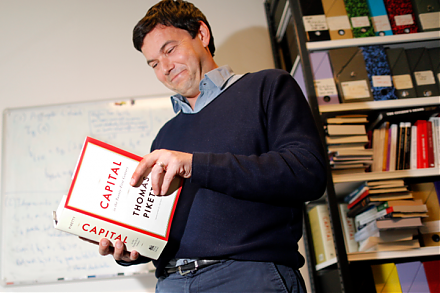

Home > Library > USPTO patent publication: Algorithmic system for asset return prediction and fintech network platform automation
Author Andy Yeh Alpha
This USPTO patent publication delves into our algorithmic system for dynamic conditional asset return prediction and fintech network platform automation. The current invention pertains to the novel, non-obvious, and applicable design and development of an algorithmic system for dynamic conditional asset return prediction and fintech network platform automation. Core technicality entails the consistent estimation of dynamic conditional alphas after the econometrician controls for myriad fundamental characteristics such as size, value, momentum, profitability, asset investment growth, and market risk through recursive multivariate filtration. Conditional specification test evidence supports the use of the dynamic conditional multifactor model for asset return prediction against the static alternatives. The fintech network platform allows users to interact with one another by transmitting valuable units of financial intelligence and information in an online social network. The information units include dynamic conditional alpha rank order, key financial ratio summary, quadripartite visualization of financial data, and financial statement analysis. The fintech network platform automates social network functions for better interactive engagement through minimum viable cloud computing facilities for mobile app design.
Description:
This USPTO patent publication delves into our algorithmic system for dynamic conditional asset return prediction and fintech network platform automation. The current invention pertains to the new, non-obvious, and applicable econometric design and implementation of an algorithmic system for better risky asset return prediction and financial intelligence technology (fintech) platform automation. The critical elements of new technicality land in our dynamic conditional alpha and beta estimation for better asset return prediction and algorithmic fintech platform automation. The current invention entails the use of a recursive multivariate filter for the econometrician to extract dynamic conditional alpha and beta time-series for more accurate asset return prediction. This statistical analysis suggests a robust positive relation between dynamic conditional alphas and Sharpe ratios of average excess returns to return volatility after the econometrician controls for multiple fundamental characteristics, asset investment styles, and portfolio tilts. These main characteristics are market risk, size, value, momentum, asset growth, and operating profitability. The current invention involves a new rigorous conditional specification test for hypothesis test design and development in risky asset return prediction. In effect, this test helps distinguish the dynamic and static multifactor asset pricing models. The preponderance of our empirical results for U.S. individual stocks and international stock, bond, currency, and commodity portfolios favors the use of dynamic conditional alpha analysis in contrast to static asset return prediction. Through fast and stable cloud computing facilities for mobile web app design and encryption, the current invention automates the dynamic conditional alpha estimation and the algorithmic fintech platform. With a reasonably modular and interactive social network, the fintech platform helps optimize active-click mutual engagement (ACME) among active users through both the centrifugal and centripetal user interactions as well as the time-specific rank order of each active end user’s asset portfolio value ceteris paribus. ACME increases exponentially when the highly modular algorithmic fintech platform boosts these user interactions, improves individual users' dynamic conditional alpha ranks, and/or causes significant changes in structural characteristics such as demographic attributes, interests, behaviors, other platform usage patterns, and so forth.
This analytic ebook cannot constitute any form of financial advice, analyst opinion, recommendation, or endorsement. We refrain from engaging in financial advisory services, and we seek to offer our analytic insights into the latest economic trends, stock market topics, investment memes, and other financial issues. Our proprietary alpha investment algorithmic system helps enrich our AYA fintech network platform as a new social community for stock market investors: https://ayafintech.network.
We share and circulate these informative posts and essays with hyperlinks through our blogs, podcasts, emails, social media channels, and patent specifications. Our goal is to help promote better financial literacy, inclusion, and freedom of the global general public. While we make a conscious effort to optimize our global reach, this optimization retains our current focus on the American stock market.
This ebook shares new economic insights, investment memes, and stock portfolio strategies through both blog posts and patent specifications on our AYA fintech network platform. AYA fintech network platform is every investor's social toolkit for profitable investment management. We can help empower stock market investors through technology, education, and social integration.
2019-10-09 16:46:00 Wednesday ET

IMF chief economist Gita Gopinath indicates that competitive currency devaluation may be an ineffective solution to improving export prospects. In the form
2019-07-30 15:33:00 Tuesday ET

All of the 18 systemically important banks pass the annual Federal Reserve stress tests. Many of the largest lenders announce higher cash payouts to shareho
2019-08-24 14:38:00 Saturday ET

Warren Buffett warns that the current cap ratio of U.S. stock market capitalization to real GDP seems to be much higher than the long-run average benchmark.
2018-01-04 07:36:00 Thursday ET

The world now faces an economic inequality crisis with few policy options. Some recent U.S. Federal Reserve data suggest that both income and wealth inequal
2018-10-09 08:40:00 Tuesday ET

The International Monetary Fund (IMF) appoints Harvard professor Gita Gopinath as its chief economist. Gopinath follows her PhD advisor and trailblazer Kenn
2018-02-03 07:42:00 Saturday ET

Quant Quake 2.0 shakes investor confidence with rampant stock market fears and doubts during the recent Fed Chair transition from Janet Yellen to Jerome Pow